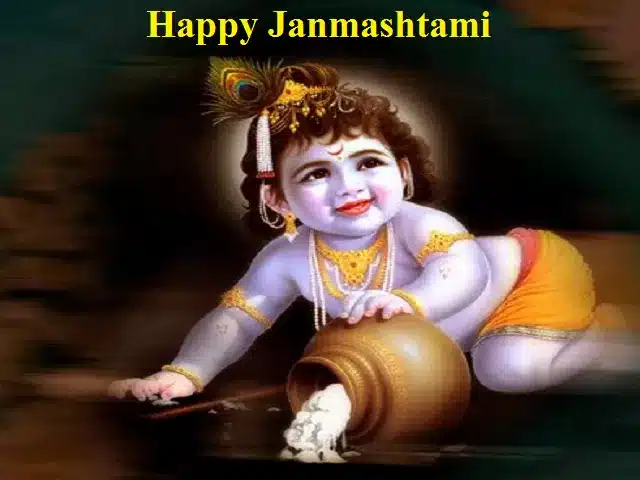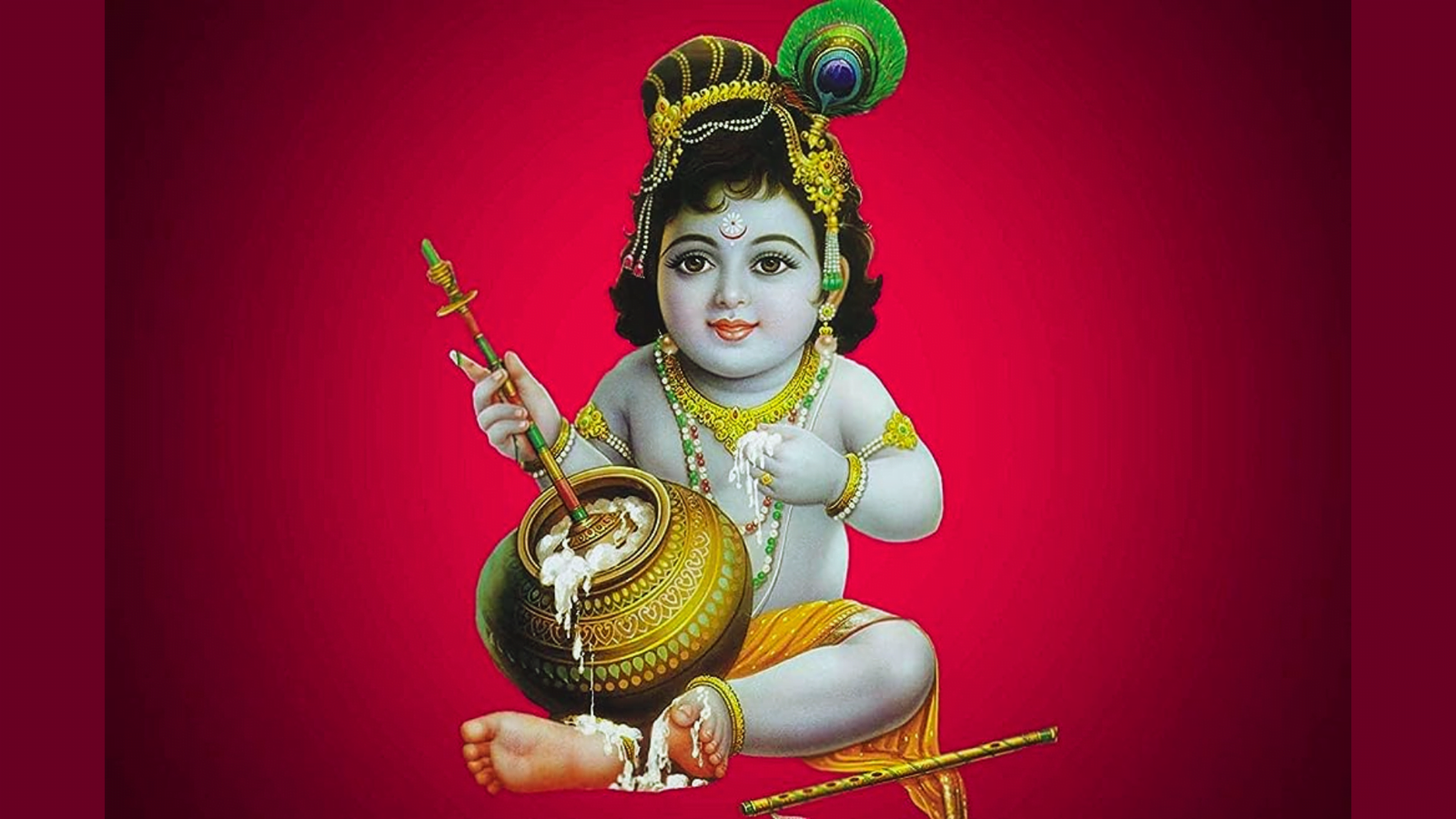Blog
What is the significance of Janmashtami celebration?

Janmashtami, the auspicious Hindu festival celebrated with fervor and enthusiasm, holds profound significance in the hearts and minds of millions worldwide. Marking the birth anniversary of Lord Krishna, the eighth avatar of Lord Vishnu, Janmashtami is steeped in rich cultural, spiritual, and historical significance. This vibrant celebration transcends geographical boundaries, bringing together devotees from diverse backgrounds to honor the divine incarnate and immerse themselves in his teachings and leelas (divine acts). Through elaborate rituals, devotional songs, and vibrant festivities, Janmashtami serves as a reminder of the timeless wisdom imparted by Lord Krishna and the eternal values he embodied.
Historical Roots and Mythological Significance
Janmashtami traces its roots back to ancient India, where the birth of Lord Krishna took place in Mathura, over 5,000 years ago. According to Hindu mythology, Lord Krishna incarnated on Earth to rid it of evil forces, establish righteousness (dharma), and guide humanity towards spiritual liberation. The divine play of Krishna, from his miraculous birth to his heroic deeds and philosophical discourses, forms the crux of Janmashtami celebrations. His transcendental pastimes, depicted in sacred texts like the Bhagavad Gita and the Bhagavata Purana, continue to inspire devotees across generations, fostering devotion and moral upliftment.
Spiritual Significance and Philosophical Teachings
Janmashtami serves as a poignant reminder of the timeless wisdom imparted by Lord Krishna in the Bhagavad Gita, where he elucidates the path of righteousness, duty, and devotion. His teachings on karma yoga (the path of selfless action), bhakti yoga (the path of devotion), and jnana yoga (the path of knowledge) offer invaluable insights into leading a purposeful and fulfilling life. Through his divine discourse to Arjuna on the battlefield of Kurukshetra, Krishna emphasizes the importance of fulfilling one’s duties without attachment to the results, surrendering to the divine will, and cultivating a deep-seated devotion to the Supreme.
Cultural Celebrations and Festivities
Janmashtami is celebrated with great zeal and enthusiasm across India and in various parts of the world with significant Hindu populations. The festivities begin with fasting, prayers, and devotional singing on the eve of Janmashtami, known as “Nanda Utsav.” Devotees observe a strict fast until midnight, the auspicious time of Lord Krishna’s birth. Temples and households are adorned with flowers and colorful decorations, and intricate rangoli designs embellish the entrances, symbolizing prosperity and auspiciousness.
Midnight Celebrations and Dahi Handi
The highlight of Janmashtami celebrations is the midnight hour, commemorating the exact moment of Lord Krishna’s birth. Devotees gather at temples or homes, singing hymns and chanting mantras in anticipation of the divine arrival. As the clock strikes midnight, conch shells are blown, and the atmosphere is filled with joyous cheers of “Hare Krishna” and “Jai Shri Krishna.” The birth of Lord Krishna is celebrated with fervent devotion, symbolizing the triumph of good over evil and the restoration of righteousness.
Another popular aspect of Janmashtami celebrations is the “Dahi Handi” festival, especially prominent in Maharashtra. Inspired by Krishna’s mischievous childhood antics of stealing butter, young men form human pyramids to reach and break earthen pots filled with curd, butter, and other goodies suspended from a height. This tradition symbolizes unity, teamwork, and the spirit of camaraderie, echoing the playful spirit of Lord Krishna and his beloved Gopis.
Devotional Offerings and Prayers
Throughout Janmashtami, devotees offer special prayers, bhajans (devotional songs), and aarti (rituals of worship) to Lord Krishna, seeking his blessings for prosperity, peace, and spiritual upliftment. Elaborate feasts, known as “bhog,” are prepared and offered to the deity, comprising a variety of delicacies like sweets, fruits, and savory dishes. The prasad (blessed food) is distributed among devotees as a token of divine grace and blessings.
Relevance in Modern Times
In today’s fast-paced world, the celebration of Janmashtami holds immense relevance, serving as a guiding light amidst the chaos and turmoil of modern life. The teachings of Lord Krishna on duty, righteousness, and devotion resonate deeply with seekers on the spiritual path, offering solace and direction in navigating life’s myriad challenges. Janmashtami inspires individuals to cultivate virtues like compassion, humility, and selflessness, fostering harmony and goodwill in society.
Global Reverence and Unity
Janmashtami transcends geographical and cultural boundaries, resonating with devotees of all backgrounds worldwide. From the bustling streets of India to the serene temples in distant lands, the spirit of Janmashtami unites people in a common bond of devotion and reverence for Lord Krishna. Regardless of nationality or creed, devotees come together to celebrate the divine incarnation, emphasizing the universal message of love, compassion, and spiritual wisdom embodied by Krishna. In an increasingly interconnected world, Janmashtami serves as a reminder of our shared humanity and the importance of embracing diversity while recognizing the underlying unity of all beings under the divine cosmic order.
Educational Significance and Moral Values
Janmashtami also holds educational significance, especially for children, who learn valuable moral lessons from the life and teachings of Lord Krishna. His childhood exploits, characterized by innocence, bravery, and compassion, inspire youngsters to emulate noble qualities and cultivate virtues such as honesty, humility, and integrity. The stories of Krishna’s divine play with his friends and devotees teach valuable lessons about friendship, loyalty, and the power of divine love to overcome adversity. Janmashtami thus serves as a platform for imparting timeless wisdom to future generations, nurturing their spiritual growth and moral development in a world often fraught with challenges and distractions.
Social Impact and Community Engagement
Beyond its religious and spiritual dimensions, Janmashtami has a significant social impact, fostering community cohesion and goodwill through collective participation in festivities and charitable activities. Temples and community organizations organize various events such as cultural performances, spiritual discourses, and social service initiatives during Janmashtami, providing opportunities for individuals to come together and serve society. Whether through feeding the hungry, providing healthcare, or supporting education initiatives, Janmashtami inspires acts of kindness and compassion, reinforcing the importance of selfless service (seva) in building a more inclusive and compassionate society.
Continued Relevance and Evolution
As society evolves and undergoes transformations, the celebration of Janmashtami continues to evolve, adapting to contemporary realities while preserving its timeless essence. While traditional rituals and customs remain integral to Janmashtami celebrations, innovative approaches and creative expressions breathe new life into this ancient festival, ensuring its continued relevance in the modern world. From digital satsangs and virtual darshans to eco-friendly celebrations and sustainable practices, devotees explore innovative ways to honor Lord Krishna while staying true to the core principles of devotion, righteousness, and spiritual upliftment.
FAQ:



